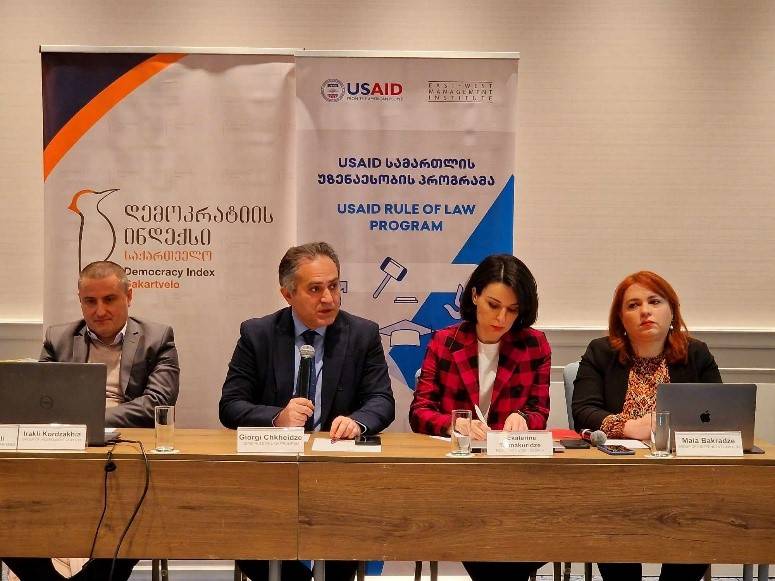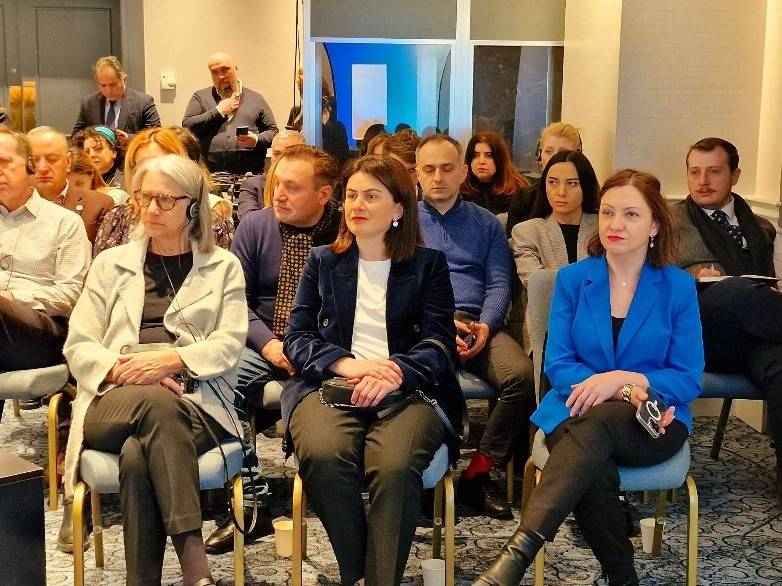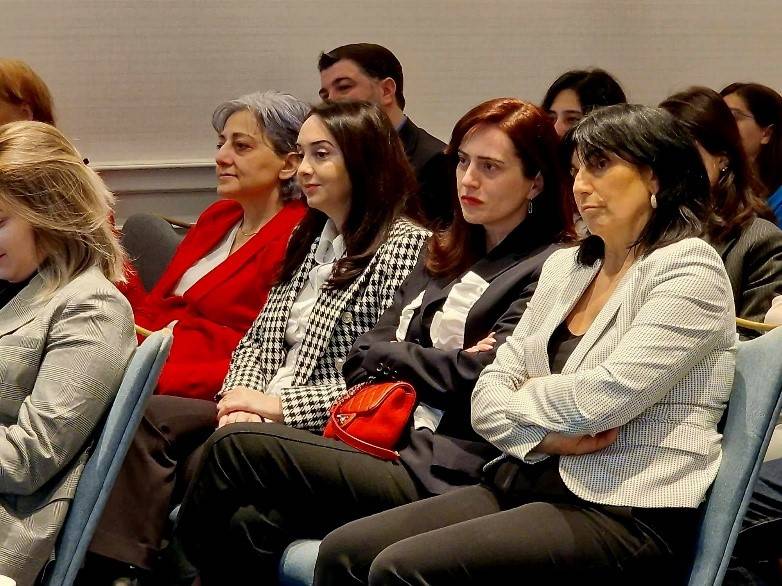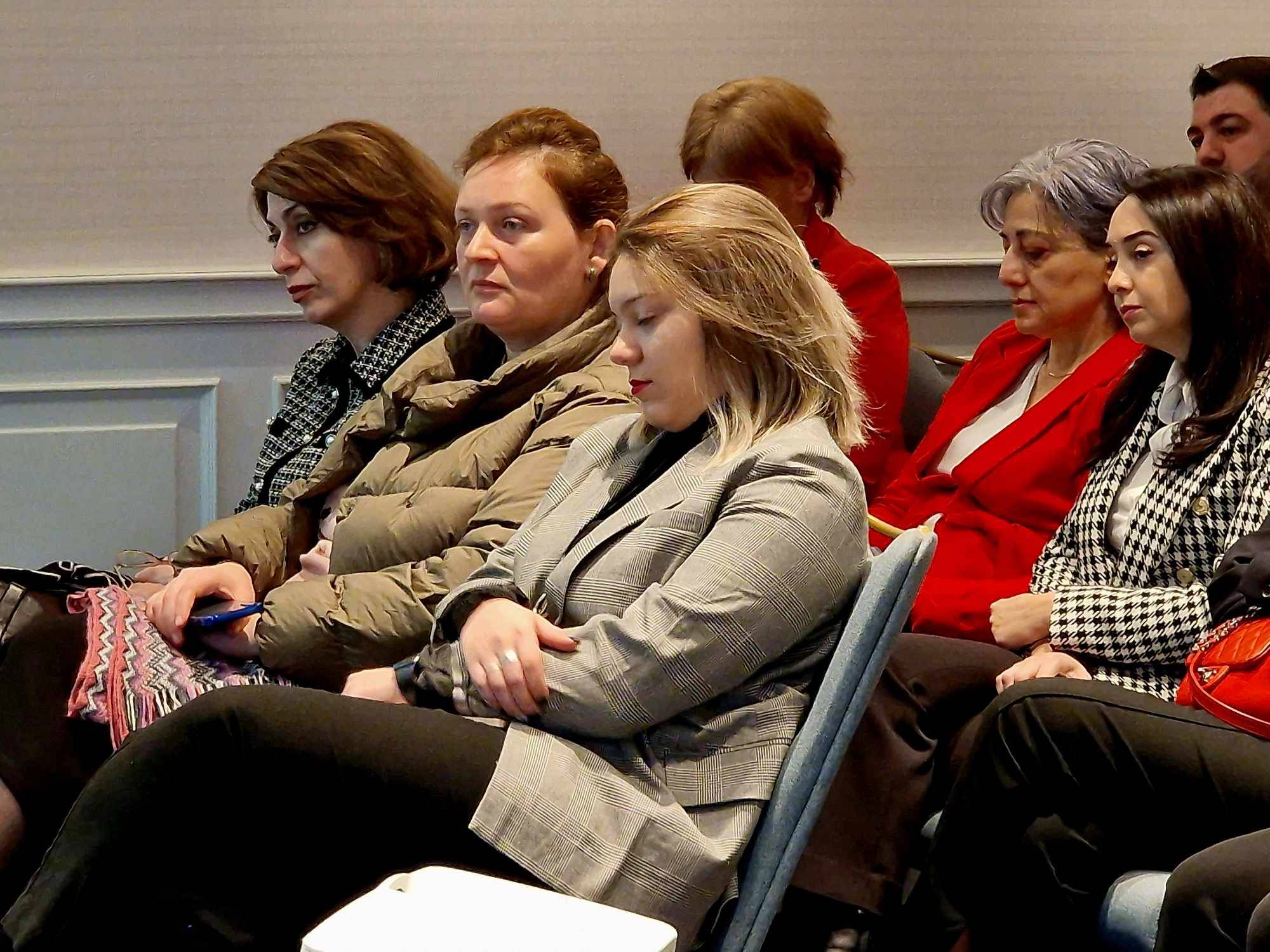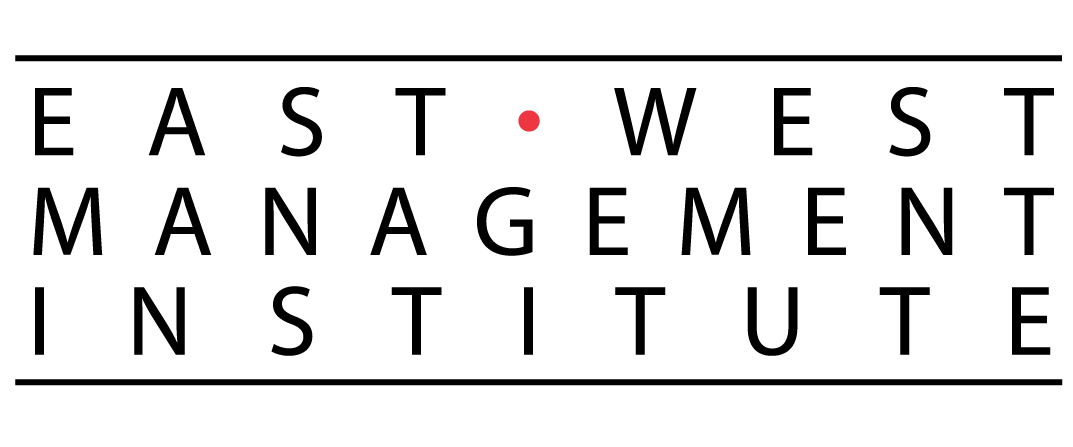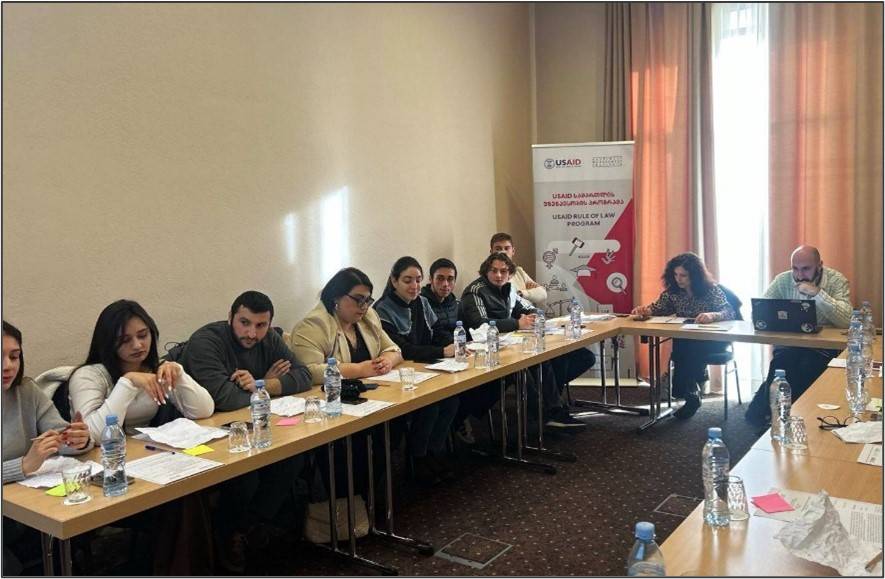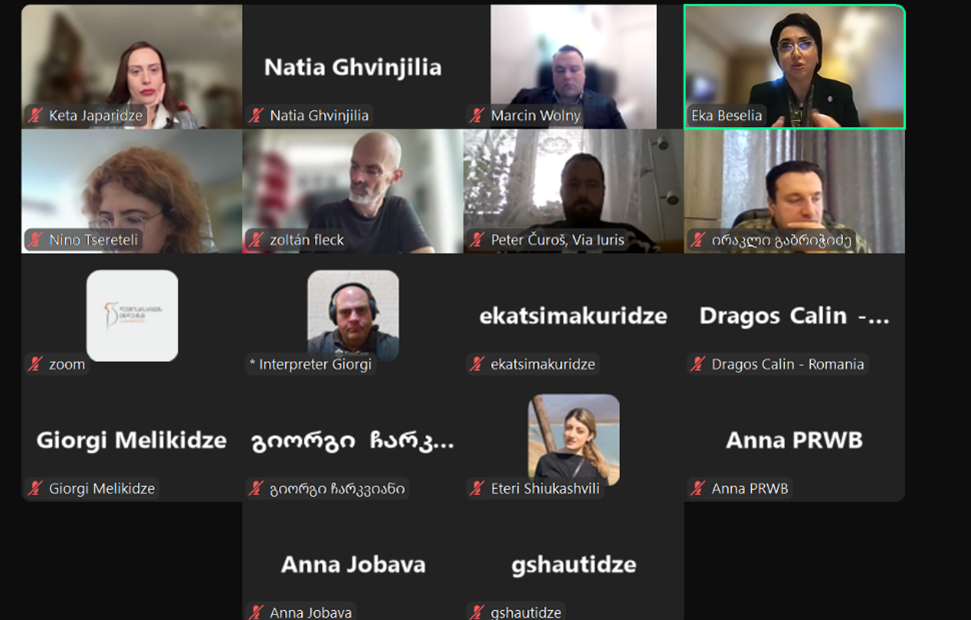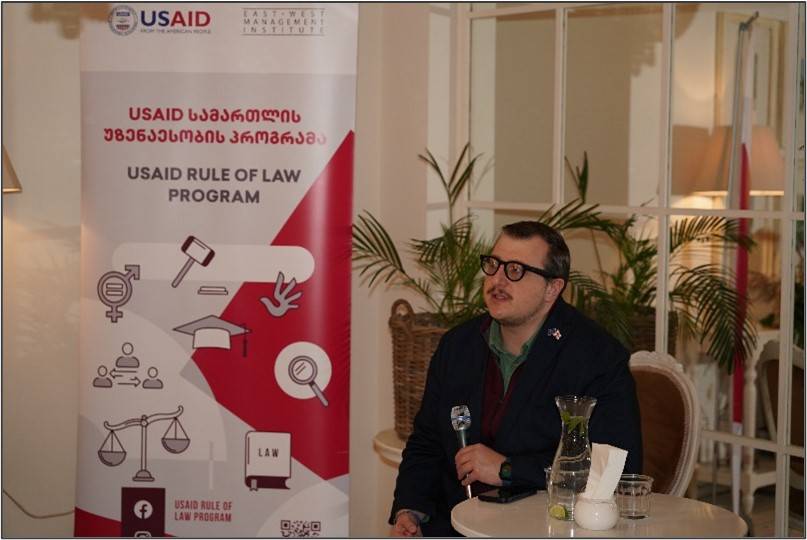Research Presentation on Addressing Case Delays in Georgia's Common Courts
On January 17, 2023, Democracy Index - Georgia (DIG) publicly unveiled the findings of its in-depth research, developed in partnership with the Independent Lawyers’ Group (ILG), supported by the USAID Rule of Law Program on the root causes of case delays within the common courts of Georgia.
The event was attended by over 60 representatives from local and international organizations, the Public Defender’s Office, the Parliament of Georgia, the Supreme Court, as well as other legal professionals.
In his opening remarks, Giorgi Chkheidze, Chief of Party for the USAID Rule of Law Program, emphasized the importance of enhancing the independence and accountability of judges while improving efficiency and eliminating barriers to court access.
Ekaterine Tsimakuridze, Head of the Democracy Index-Georgia, noted their research reveals delays in delivering justice, particularly in administrative and civil disputes, as well as in criminal cases involving non-custodial accused individuals.
The research methodology involved face-to-face interviews with more than 30 practicing lawyers, and 200 respondents, including judges, lawyers, arbitrators, and public agency lawyers, as well as written questionnaires.
Maia Bakradze and Kakha Tsikarishvili the authors of the document, shared many of their research findings. They found that courts lack a cohesive system for handling case flow tailored to the needs of judges. Judges also lack exposure to contemporary methodologies, periodic retraining, and access to modern technologies and adequate human resources support, relying solely on their professional duty as an incentive. The researchers said that Georgian legislation for regulating case flow is outdated and inadequate. They noted instances where judges inefficiently used existing legal mechanisms to curb session postponements as well as reported that Georgia does not have a mechanism to hold lawyers accountable for intentional delays nor does it have a mechanism which allows citizens to expedite their cases or seek compensation for case delay.
According to the research, regardless of court location or workload, the majority of first instance courts fail to observe the 5-month exceptional timelimit established by law for civil and administrative cases. In higher instance courts, civil and administrative cases take from 3 to 10 months to complete. The research also showed that between 2018 and 2020, the average time it took to resolve civil and administrative cases has increased to more than 400 days.
Finally, the research authors noted that Georgia has so far been unsuccessful employing alternative dispute mechanisms, such as mediation and arbitration to the extent that would reduce court caseload.
